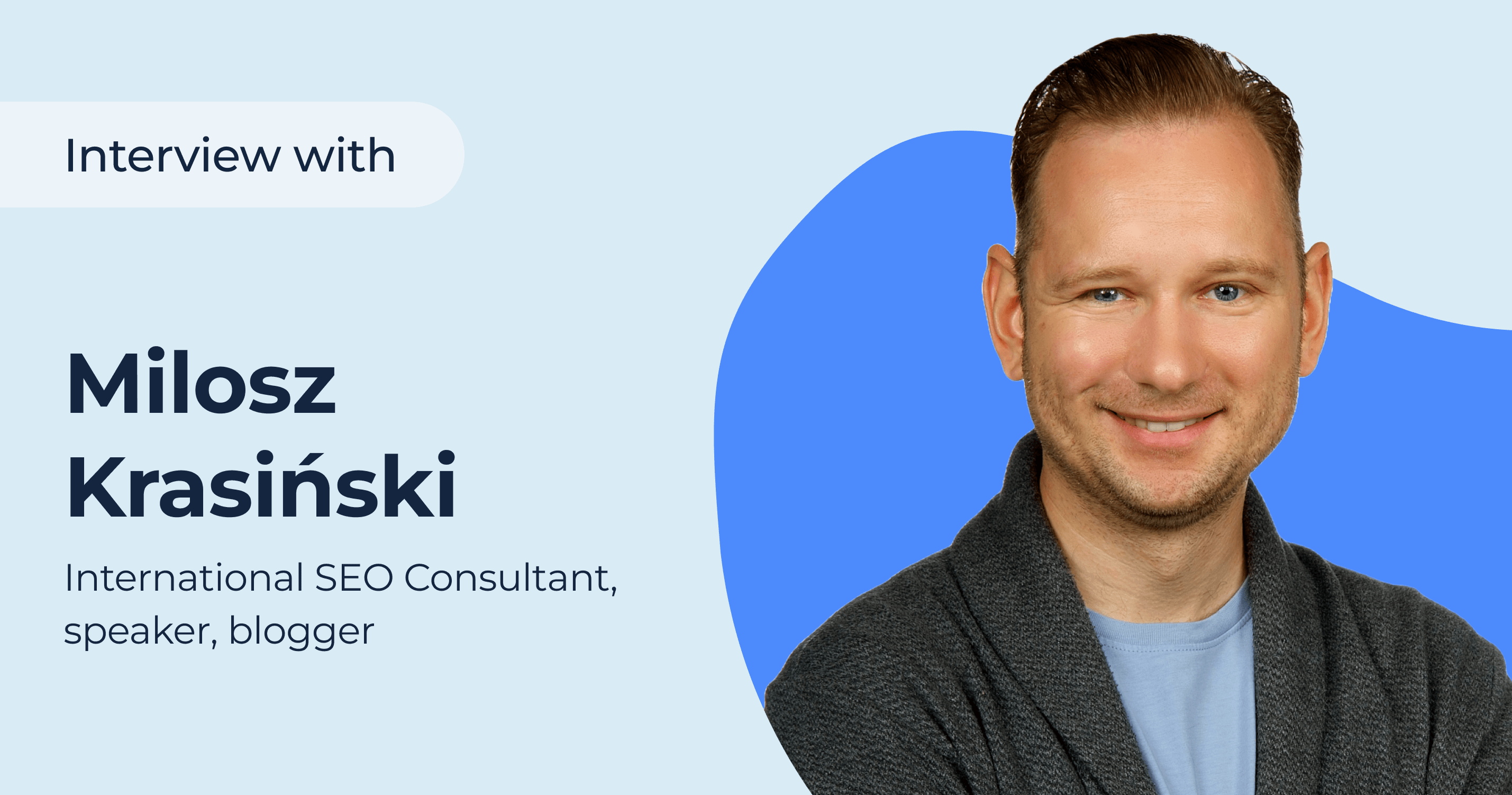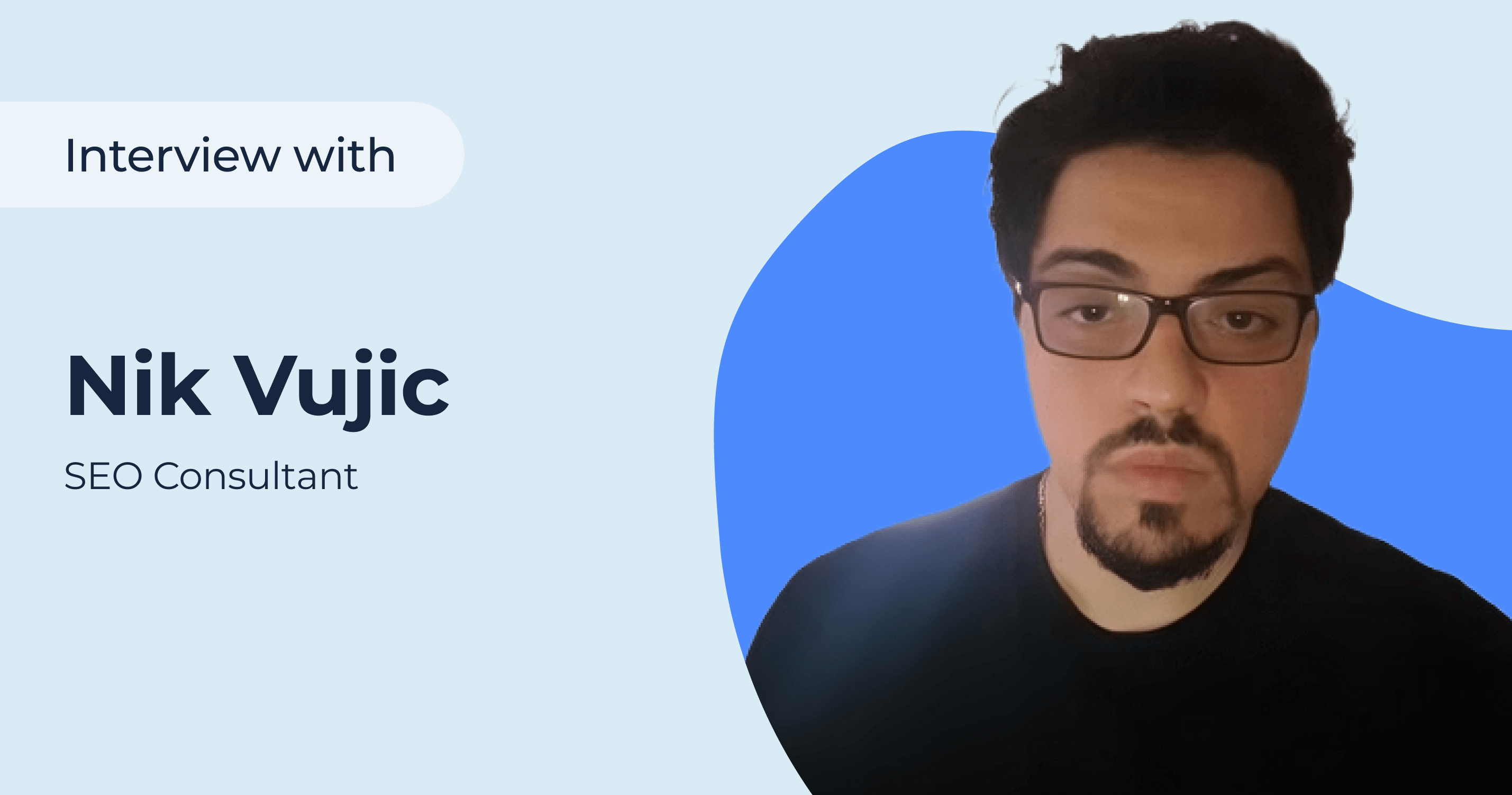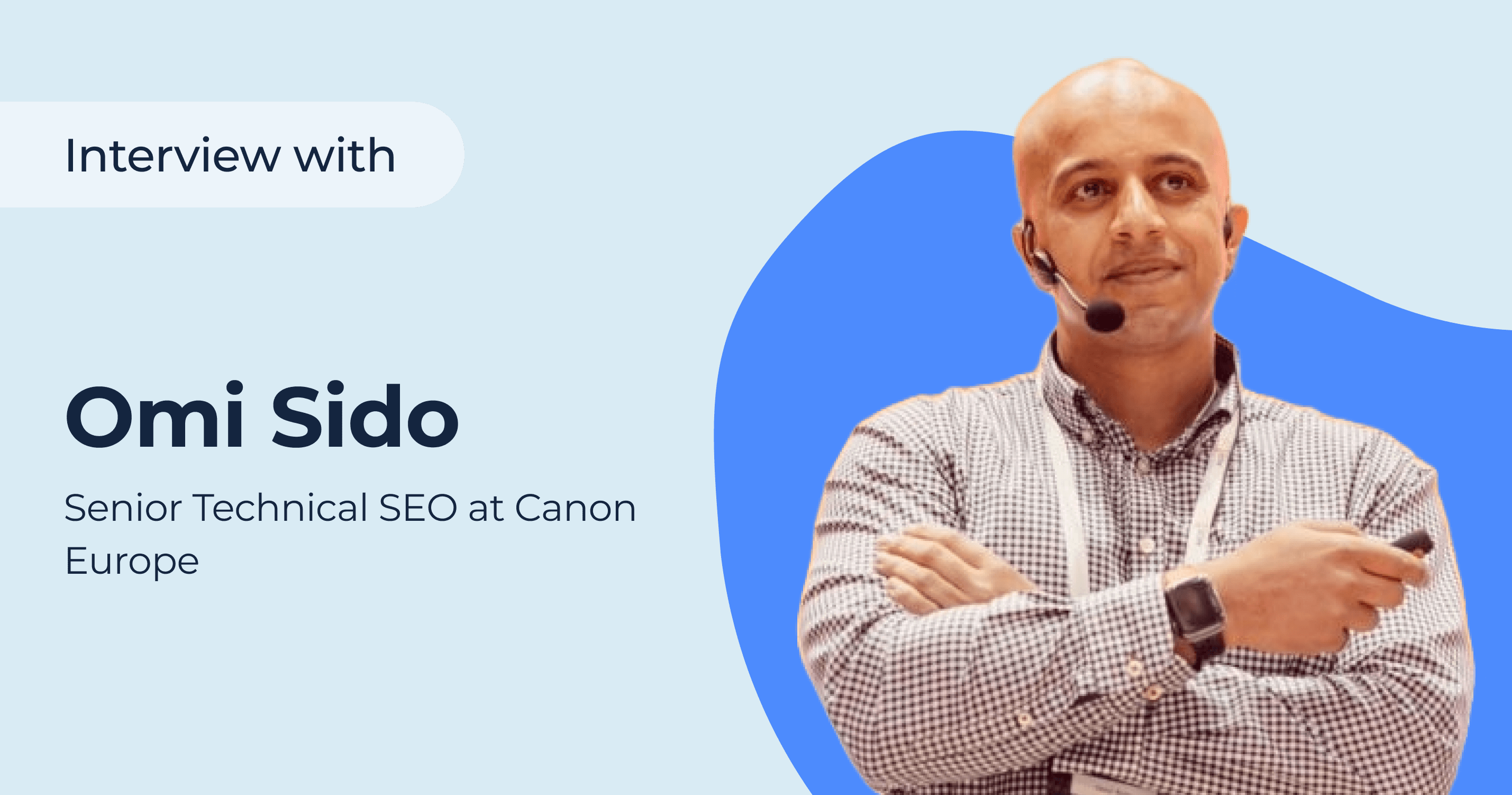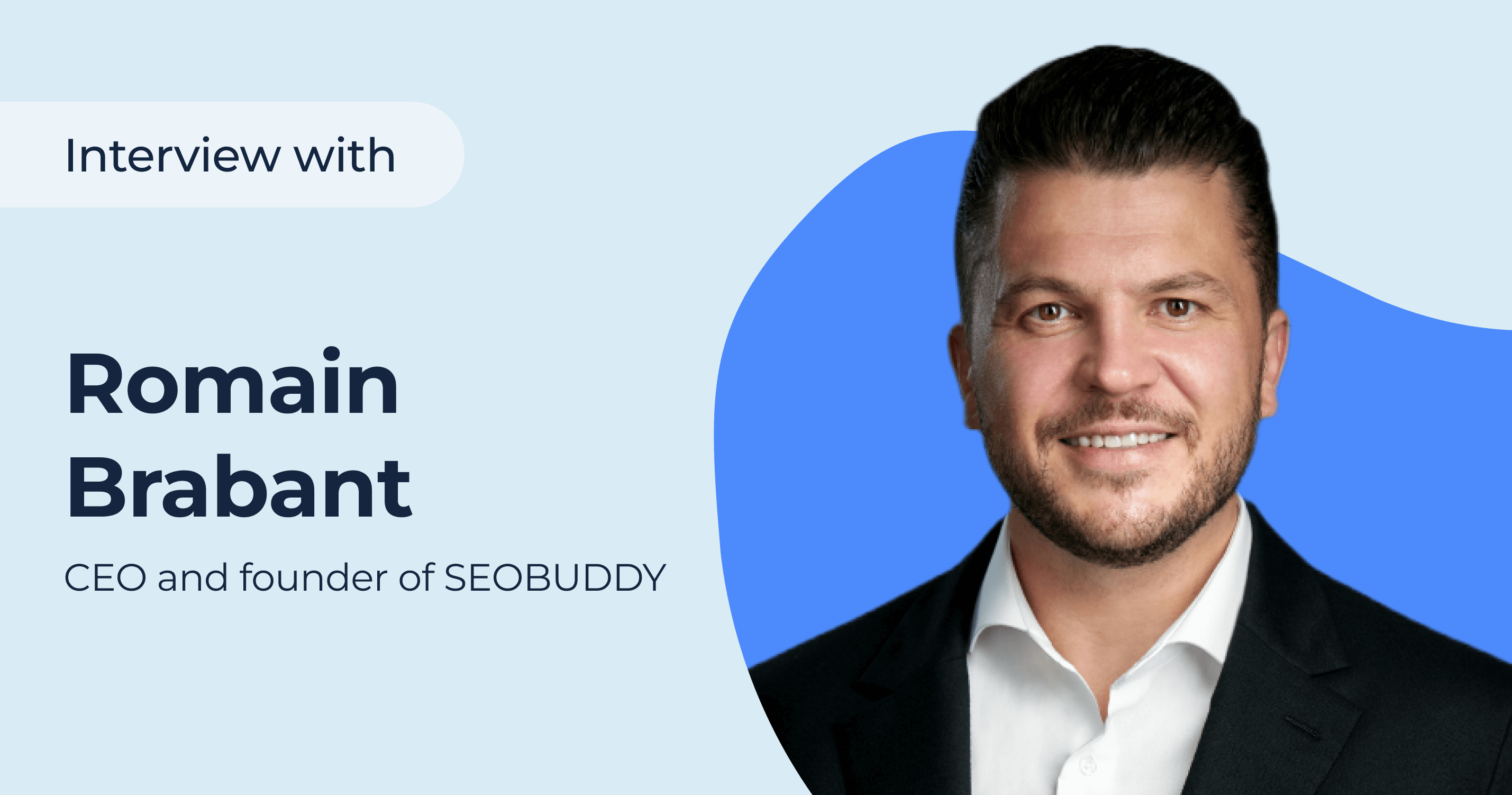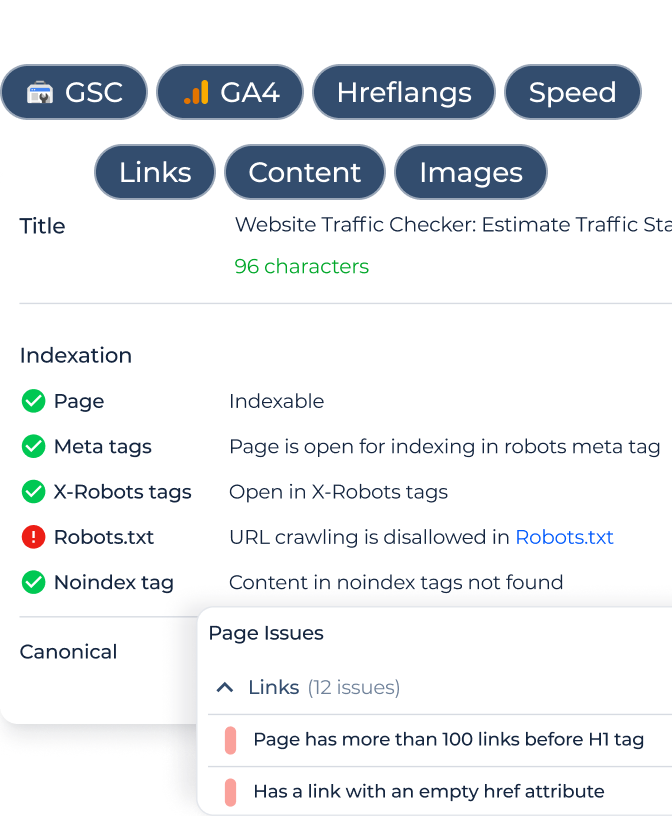Milosz Krasiński is an international SEO consultant, speaker, blogger, managing director of Chilli Fruit Web Consulting. Get more about Milosz by visiting his website or Twitter page.
1. How many years of experience in digital marketing do you have?
10 years.
2. What type of digital marketing do you have the strongest skills in?
I specialize in off-page SEO and digital PR. I used to run Chilli Fruit Web Consulting as a regular technical & Development company building websites, technical heavy SEO and development.
We are now a 100% link building relationship agency with digital PR touch and content advising clients on the technical off-page and on-page aspects. With such a good mix of knowledge, clients are always getting every answer as to what is happening with them after each Google update.
3. What projects have you launched recently that you are proud of?
NBA Blast.
4. What do you do to further your own SEO knowledge and skills?
While I do listen to some podcasts and read blogs, I mostly expand my knowledge through testing and experimenting. Link building is such an extensive area that there are countless workflows and tactics to be found.
My team is up for various tests and experiments as well as clients who almost never listen to the advice from the generic SEO blog post on the internet. Put this way best practices are killing your business if they aren’t specific to your business model as well as the industry you are in.
5. Is there any marketing or SEO blog you like most of all and why?
Steve Toth’s blog and newsletter. Most of the other blogs are filled with stuff that I already know, whereas Steve always comes up with something non-obvious and quick to implement, while at the same time incredibly effective. He’s a no-bullshit kind of guy and he never hits you with some generic advice that you can find with a ten-second Google search.
Ross Tavendale is amazing when pitching journos – he hasn’t got any blog but you can find his talks on the internet.
6. What SEO tactics do you think are underrated?
I’d say that simply updating your content as time goes by is one of the most important things you can do, albeit rarely done by larger companies. I’ve seen plenty of situations where a client’s site was filled to the brim with old, outdated, irrelevant, or plainly bad posts. These pages didn’t even rank within the top 100 results, making them pretty much useless. And, even if they did rank, they had a tremendous bounce rate as the information was pretty much useless. Instead of increasing the organic traffic, they did harm by diluting the topical authority of the website.
Content pruning is another thing that I recommend to larger clients. Essentially, it’s all about getting rid of that old content that weighs their website down and either 301 redirecting it to newer articles or deleting it entirely.
Oftentimes, people seem to forget completely about content, focusing on backlinks instead. Of course, backlinks are still important. Still, even if you do manage to rank with hundreds of links, behavioral signals are going to bring you right down. Content should be the backbone of your business, especially if your company is online-based.
7. Do you believe that backlinks are Google’s past? Is link building important for increasing the website’s positions nowadays?
They’re just as important as they used to be. You just can’t rank without them. While there are some cases of webmasters managing to rank their pages with a heavy focus on content and virtually no backlinks, they still relied massively on a proper internal linking strategy. Links are one of the most important signals just because they’re so convenient to Google and capture authority incredibly well. And they’re here to stay.
8. In your opinion, does the technical health of the website affect the ranking positions in search engines?
Google’s algorithm has got pretty smart and is great at detecting technical issues. A website’s health has a direct impact on user behavior, which, in turn, has a direct impact on your conversions and sales. Core Web Vitals are to become a ranking signal, and they’re related to site health a lot.
9. How do you stay up-to-date on the near-constant search algorithm changes?
I read the news and documentation but mostly I speak to other SEO’s with whom I have a relationship and trust. These types of conversations are only available for those in our close network.
10. Are you going to surprise the SEO and Digital Marketing world with something new (tool/app, course, product)?
GPT-3 content writing. It’s a machine-learning algorithm that’s getting a lot of traction currently, yet some are still pretty reluctant to use it. It GREATLY speeds up the process of writing. Instead of taking 2-3 hours to write a 1,000-word article, my writers can now do that in about half an hour. That’s six times as quick!
The quality is almost on par with what a real human would write. I once needed 40 generics, about 1,000-word posts. With the writing assistant, two of my employees have managed to do that in just two days. That’s 10 articles per day, each. Talk about efficiency.
11. How do you make competitor analysis? Please provide a short 1-2-3 steps guide.
First of all, you need to identify the competitors. Start within the SERP — look at what keywords they rank for that you would like to rank.
When I’ve picked a couple of competitors, I do a backlink profile analysis with Linkody. That is the best way of gathering tons of opportunities. After all, if a site links to your competitors, why wouldn’t it link to you?
And, since I mostly offer link-building services, that’s basically it. Then I export the results into a spreadsheet and reach out. Simple as that.
12. In your opinion, does a user’s behavior impact on website ranking in SERP?
It does, almost everything depends on what your page is all about. Some say that short dwell time is bad, but it’s not always the case. If your page doesn’t have much content, your user is bound to leave quicker, satisfied with the answer.
Conversely, if you have a monstrous, 5,000-word article and the dwell time is below one minute, then there’s something wrong, and that can have an impact on the rankings. Since the user is not satisfied with the result as he left quicker than the time it takes to read your article, your page must be sub-par compared to others.
Again, this all depends on the phrase the user enters. If they go ahead and search for a conversational, long-tail thing in the form of a question, chances are they’re looking for a quick answer and might just enter your page for 10 seconds. On the other hand, if the searcher enters a broad keyword, they need something extensive.
13. How do you see the future of SEO (in 5 years)?
- Backlinks will still be as prevalent as they are today.
- Google will add more features to the SERP, making it harder to improve CTR.
- Search intent will be the most important thing when it comes to content.
- More AI-based content writing.
- UX will be a king.
14. What advice can you give for those who are just starting their career in digital marketing?
Networking and partnerships are everything. Be nice, respond to emails quickly, and don’t be obnoxious. People will like you and will be more likely to do business with you.
15. How to make a website search engine friendly? Could you please name the main steps?
- Keyword research and competitor analysis.
- Keyword clustering.
- Building a silo for money keywords and improving topical authority.
- Technical SEO.
- Internal linking.
- External backlinks.
16. SEO is such a controversial thing. Every SEO specialist rates its success differently. What is your way to rate SEO success? What metrics do you look at?
Traffic and conversions. Even though I mostly do link building, I find DR, AS, and all the other things vanity metrics. Traffic and conversions are the real deal when assessing your results.
17. In your opinion, a good SEO specialist should be a good analyst? What extra knowledge should an SEO specialist have to succeed?
Essentially, SEO is all about drawing conclusions from the data you’re presented with. So yes, analysis is the backbone of SEO.
18. You are noticed at many digital conferences. How important live communication is for business? How does it work for you?
I’ve got plenty of new leads from conferences. While things are pretty slow now, I can’t wait for the large events and meet some of the best SEOs in person again.
19. Should a business have a corporate blog?
A blog is an invaluable source of opportunities to rank for new keywords and build topical authority.
20. What do you prefer the most: client SEO, own projects, consulting, something else?
Although I’ve mostly done client SEO throughout my career, I’m growing a bit tired of it. For this reason, I’m going to look into affiliate marketing and developing my own website as a part of my business. Still, clients are to remain my main source of income for the months or even years to come.
21. What strategy do you prefer: launch and grow many small projects or work on a few solid projects?
Few solid projects. I’d rather have my attention in one or a couple of places than jumping from one project to another all the time.
22. Have you ever used black hat and grey hat SEO tactics? What do you think about them?
When I was getting started, of course, I was using black hat things. Everybody did. Keyword stuffing, cloaking, link farms, all that kind of stuff. Currently, I don’t rely on such techniques since it’s incredibly short-term. If you want to get your site to the top for Black Friday and drop a week later, then fine, go for it. Nowadays, I mostly rely on white- or, at most, grey-hat stuff like a link exchange.
23. Have you ever run Google Ads campaigns? How do you combine Google Ads campaigns and SEO?
Yes, I used to be a PPC guy and spent 500K GBP in my entire PPC career!
24. Does your university degree help to succeed in SEO and digital marketing?
Yes, I believe so. I’m a sound engineer. SAE has told me to be precise, detail-oriented, engineering approach and disciple meaning everything has to be fast and on time. It’s one of the hardest Uni in the world.
However, most of my colleagues from the SEO industry are similar. For example, Michal Suski, the co-founder of Surfer, has majored in forestry. Many successful guys don’t hold any degree. So be careful with Universities as student loans aren’t cheap and ROI from there it’s a little bit questionable.
25. Can you share your professional and business plans for the next 2-3 years?
Grow more independently and stop relying on clients so much.
26. What can you tell about mobile SEO? Is it true for you that mobile SEO will absolutely force out desktop soon?
Sure, it will do but it depends on the type of users. B2B users, CMO looks for some serious services that won’t be scrolling some bits using mobile phones. Neither doctors nor lawyers…
